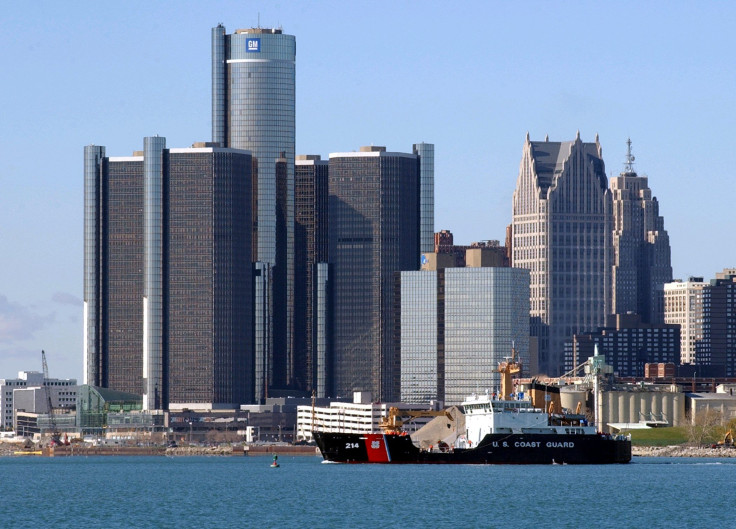
Detroit has spent the last five weeks attempting to tackle its massive debt once and for all. The city filed for bankruptcy Thursday. It is the biggest U.S. city in history to file for bankruptcy, the Associated Press reported. The filing means hundreds of layoffs, pension cuts for city employees, cutbacks on crucial services such as garbage collection and the selling of its assets. Emergency Manager Kevyn Orr, who was appointed by Michigan Gov. Rick Snyder in March to review the city's finances, discussed the options with banks. Some agreed to take reduced payments, but Orr ultimately decided to seek Snyder's approval to file, CNN Money reported. Snyder released a statement Thursday indicating that Detroit had little options regarding its financial crisis.
"Only one feasible path offers a way out," Snyder wrote.
For now, the bankruptcy judge who will be in charge of the case will decide where the hearings are to take place. A temporary stay will be placed on Detroit's debts. including unsecure debts. The city will continue to pay secured creditors, who can seize assets from the city if it fails to pay, USA Today reported. Basic services such as police, fire and sanitation will continue to run as usual for now without requiring court approval, but cuts are possible in the near future.
"You have the ability to use your cash," Jay Welford, a bankruptcy attorney and partner at Jaffe Raitt Heuer & Weiss, said. "You don't need court approval."
Detroit's financial woes have been accumulating as far back as the 1950s, when its population swelled to 1.8 million people at the start of the burgeoning auto industry in the city. By the 1960s, however, auto companies began expanding and moving jobs to other cities as well as seeking to open plants elsewhere. As property value and tax revenue fell, police began struggling to control crime in the densely-populated city. The import of Japanese automobiles also began clipping away at Detorit's automotive prowess. Detroit's crumbling economy made it less and less desirable, causing people to flee. In 2000, it experience a sharp population drop, losing a quarter million residents between then and 2010. It now maintains a population barely above 700,000. In recent years, Detroit struggled to pay its own city employees, requiring state-backed funds to do it.
Orr said in spite of some cooperation from banks, he could not receieve enough support from them to take any other action besides bankruptcy. He said of his opponents that he "bent over backward" to meet the demands of banks, and that criticism that he didn't act enough missed the mark.
"Anybody who takes that position just hasn't been listening," he said.
The bankruptcy could last until the end of 2014, the end of Orr's term as overseer. Snyder said earlier this year that Detroit was in financial peril and lacking a plan. Detroit is the largest city to require state oversight.
"The citizens of Detroit need and deserve a clear road out of the cycle of ever-decreasing services," Snyder wrote in a statement attached to Orr's bankruptcy filing. "The city's creditors, as well as its many dedicated public servants, deserve to know what promises the city can and will keep. The only way to do those things is to radically restructure the city and allow it to reinvent itself without the burden of impossible obligations."
Alice Batchelder, chief judge of the U.S. 6th Circuit Court of Appeals will oversee the case when locations for hearings are decided upon. Detroit joins seven other cities that have declared bankruptcy since January of 2010. Among them are San Bernardino, Calif.; Mammoth Lakes, Calif.; Stockton, Calif.; Boise County, Idaho; Jefferson County, Ala.; Harrisburg, Pa. and Central Falls, Mass.
© 2025 Latin Times. All rights reserved. Do not reproduce without permission.




